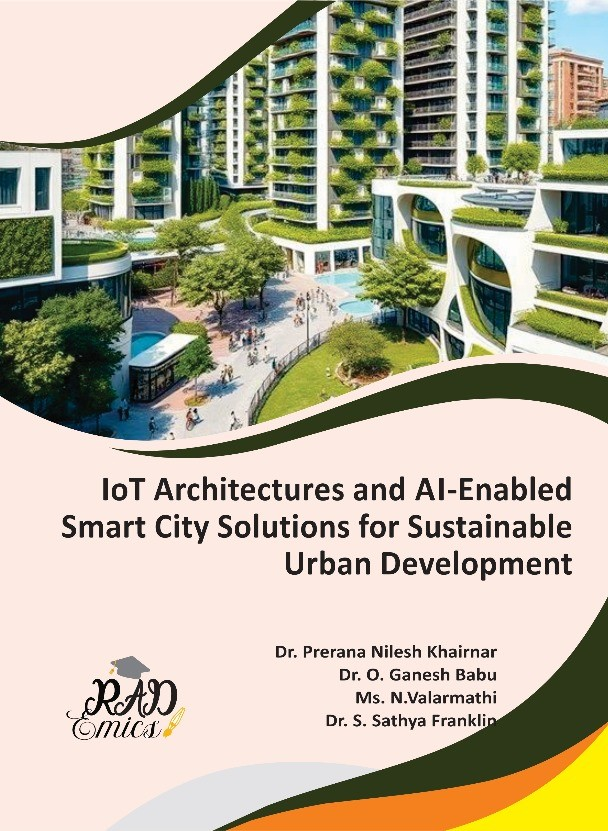
Author Name : Yegireddi Ramesh, Ganesh Babu Oorkavalan, Anusha C
Copyright: ©2025 | Pages: 34
DOI: 10.71443/9789349552241-10
Received: 11/11/2024 Accepted: 08/02/2025 Published: 24/04/2025
The integration of Artificial Intelligence (AI) and Internet of Things (IoT) technologies into water resource management presents transformative potential for addressing the growing challenges of water scarcity, inefficient irrigation, urban expansion, and environmental degradation. This book chapter explores the synergistic role of AI and IoT in enabling smart irrigation systems, real-time monitoring, predictive analytics, and sustainable water governance for urban and agricultural landscapes. It critically examines the environmental and social implications of deploying intelligent water systems, including data privacy concerns, energy consumption, labor market impacts, and ethical considerations. The chapter further emphasizes the need for inclusive stakeholder engagement in the formulation of governance frameworks to ensure equitable access, transparency, and accountability. By highlighting innovative applications and policy pathways, the chapter offers a comprehensive perspective on how AI- and IoT-enabled solutions can drive long-term sustainability, resilience, and efficiency in water management systems. This synthesis provides a foundation for future research and strategic planning in sustainable urban development.
The global water crisis, intensified by rapid urbanization, climate variability, population growth, and industrial expansion, has underscored the urgency of rethinking conventional water resource management approaches [1]. Traditional systems often rely on reactive methods, manual monitoring, and centralized control, which limit their ability to respond dynamically to changing environmental and demand conditions [2]. In this context, the convergence of Artificial Intelligence (AI) and Internet of Things (IoT) technologies offers a paradigm shift towards more responsive, data-driven, and sustainable water systems [3]. AI-driven predictive analytics and machine learning models, when integrated with IoT-enabled sensor networks and actuators, facilitate real-time data acquisition, analysis, and automated decision-making [4]. This enables proactive management of water resources, optimizes irrigation practices, reduces losses, and supports long-term water conservation strategies, particularly within urban and agricultural domains [5].
Urban areas face distinct challenges in water distribution, including aging infrastructure, leakage, and uneven supply-demand dynamics [6]. Smart water systems powered by AI and IoT can address these issues by offering end-to-end visibility and operational intelligence [7]. Sensors embedded in pipelines, water meters, and treatment facilities continuously gather data on flow rates, quality parameters, and consumption patterns [8]. AI algorithms process this data to detect anomalies, forecast demand, and recommend timely interventions. These innovations contribute not only to operational efficiency but also to water quality assurance, pollution control, and equitable distribution [9]. The integration of cloud computing and edge processing ensures scalability and faster response times, making these technologies adaptable across varied urban contexts [10].
In the agricultural sector, which remains the largest global consumer of freshwater, smart irrigation has emerged as a vital application of AI and IoT [11]. Precision irrigation systems utilize soil moisture sensors, weather data, and satellite imagery to deliver the right amount of water at the right time, minimizing waste and maximizing yield [12]. AI models interpret multi-modal data to determine optimal irrigation schedules and anticipate water stress conditions [13]. These insights help farmers adapt to changing climatic conditions while conserving water resources [14]. IoT devices enable remote monitoring and control, reducing labor dependency and operational costs. Such integrated systems also contribute to the broader goals of climate-resilient agriculture and food security, which are essential components of sustainable development [15].